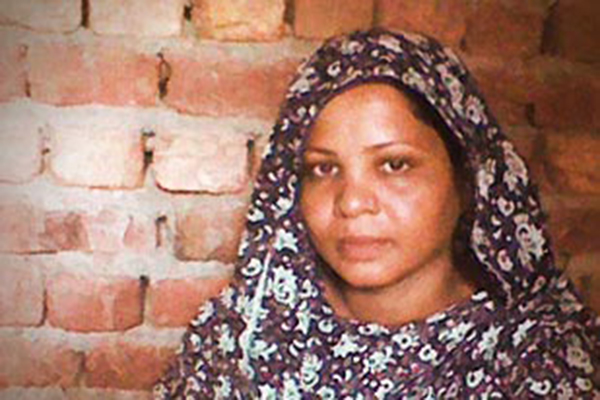On Oct. 31, Pakistan’s Supreme Court acquitted Asia Bibi, also known as Aasiya Noreen, a Christian mother condemned to death for alleged blasphemy.
“Today justice has prevailed and Bibi will soon be a free woman,” her attorney, Saiful Malook, said.
Malook said Bibi was “happy but also in a state of disbelief” that after nearly nine years in jail, she would soon be able to reunite with her husband, Ashiq Masih, their two daughters and her three stepchildren.
Religious liberty advocates globally expressed jubilation and pleas that Pakistan’s military protect Bibi.
Renewed death threats against the court, other leaders and Bibi should be taken seriously, advocates say.
The entire Christian community is considered in danger in the nation that is more than 96 percent Muslim.
Danger is not over
“The danger for this Christian mother of five is not over,” the American Center for Law and Justice (ACLJ) said in a press release.
Bibi’s current location has not been disclosed. At least two countries have offered her asylum, CNN reported. Government protection is critical to Bibi’s safety, ACLJ representative Shaheryar Gill said.
“She cannot be released openly,” Gill said. “If she is, there’s no doubt, no question about it, that her life will be in jeopardy.”
The ultra-extremist Tehreek-e-Labbaik Pakistan (TLP), called on its supporters to “be prepared to sacrifice their lives for the honor of Muhammad if the court frees the ‘blasphemer (Asia).’”
The group’s leader threatened repercussions against army generals and judges if Bibi was acquitted.
In the past 10 years at least two prominent supporters of Bibi have been killed.
Bibi was the first Christian woman sentenced to death under Pakistan’s blasphemy laws.
The allegations against Bibi were that she made three “defamatory and sarcastic” statements about Muhammad on June 14, 2009, during an argument with three Muslim women while the four of them were picking berries in a field in Sheikhupura District in Punjab.
Bibi was asked to fetch water but the Muslim women objected, saying that as a non-Muslim she was unfit to touch the water bowl.
The women later went to a local cleric and accused her of blasphemy against Muhammad.
The prosecution had claimed that Bibi “admitted” making the blasphemous statements at a “public gathering” on June 19, 2009, “while asking for forgiveness.”
Sentenced to death
A trial court convicted her for blasphemy in November 2010 and sentenced her to death. An Islamist cleric also put a $5,000 bounty on her head.
The Lahore High Court upheld Bibi’s conviction and confirmed her death sentence in October 2014.
She took her case to the Supreme Court, which stayed her execution in July 2015 and admitted her appeal for hearing.
The top court initially took up the appeal in October 2016 but postponed the matter without hearing until October 2018.
Soon after the high court announced its decision to acquit her, violent protests broke out in several cities across the country.
Thousands of angry Muslims blocked roads and main highways in several cities of Pakistan, including Rawalpindi, Karachi and Hyderabad in protest of Bibi’s acquittal. All markets and trade centers were shut down in Islamabad, as well as in Punjab and Sindh provinces.
Bibi’s case sparked widespread outrage in the international community over the country’s blasphemy laws and the strict enforcement of them, but all appeals to abolish them have been rejected so far.
While Pakistani law carries the death penalty for blasphemy and offenders have been sentenced to death, so far no one has ever been executed.
If Bibi’s appeal had been rejected, she would have become the first Christian and first woman to be executed on blasphemy charges in Pakistan.
Human rights officials worldwide praised the verdict and urged Pakistani officials to protect religious minorities.
Pakistan is ranked fifth on Christian support group Open Doors’ 2018 World Watch List of the countries where it is most difficult to be a Christian. (MS, BP)






Share with others: